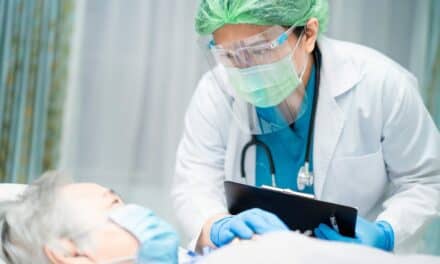OraSure Technologies, Bethlehem, Pa, has been awarded a $629,217 contract from the US Department of Health and Human Services Biomedical Advanced Research and Development Authority (BARDA) to develop an enzyme-linked immunosorbent assay (ELISA) for the detection of human anti-SARS-CoV-2 antibodies in oral fluid specimens.
The support from BARDA will help OraSure complete development and file for FDA emergency use authorization (EUA), which would allow the laboratory-based microplate antibody test for oral fluid samples to enter the US market.
This is the second covid-19-related test for which the company has received BARDA funding. The first grant, for a rapid antigen in-home oral fluid self-test, was announced in April.
“The coronavirus pandemic is complicated and fast moving. It will take a variety of tests to get it under control,” says Stephen S. Tang, PhD, president and chief executive officer at OraSure. “Understanding who is contagious and who has potentially protective antibodies will be crucial as the country continues reopening the economy and returning to everyday life. We believe that the combination of the OraSure antibody and antigen tests, along with our sample collection capabilities, can give people insight into their covid-19 status across the infection spectrum. We are proud to bring our proven expertise with oral fluid collection and testing to this global pandemic.”
The oral fluid ELISA is expected to increase laboratory covid-19 antibody testing capacity and could play a vital role in detecting coronavirus antibodies, which can be detected within 1 to 3 weeks after the onset of symptoms. Such tests could help identify people who had past covid-19 infections, even without symptoms, potentially allowing them to safely return to work or other activities if data show antibody development with past infection translates to future immunity. In addition, the test could help meet an urgent need to screen the population, especially healthcare workers, for past asymptomatic infection and potential immunity against covid-19.
To perform the test, human antibodies found in oral fluid would be collected via a wand and pad and eluted into the OraSure oral fluid specimen collection device buffer for storage and transport, then later dispensed onto the ELISA microplate for testing in a laboratory.
Under the test’s initial EUA, if obtained, the collection device would be available for specimen collection in a physician’s office, a lab, or a testing facility.
The EUA subsequently could be amended to permit an in-home or self-collection option. Being able to collect samples at home would promote social distancing and minimize healthcare workers’ exposure to patients who are potentially infected.
For more information, visit OraSure Technologies.


